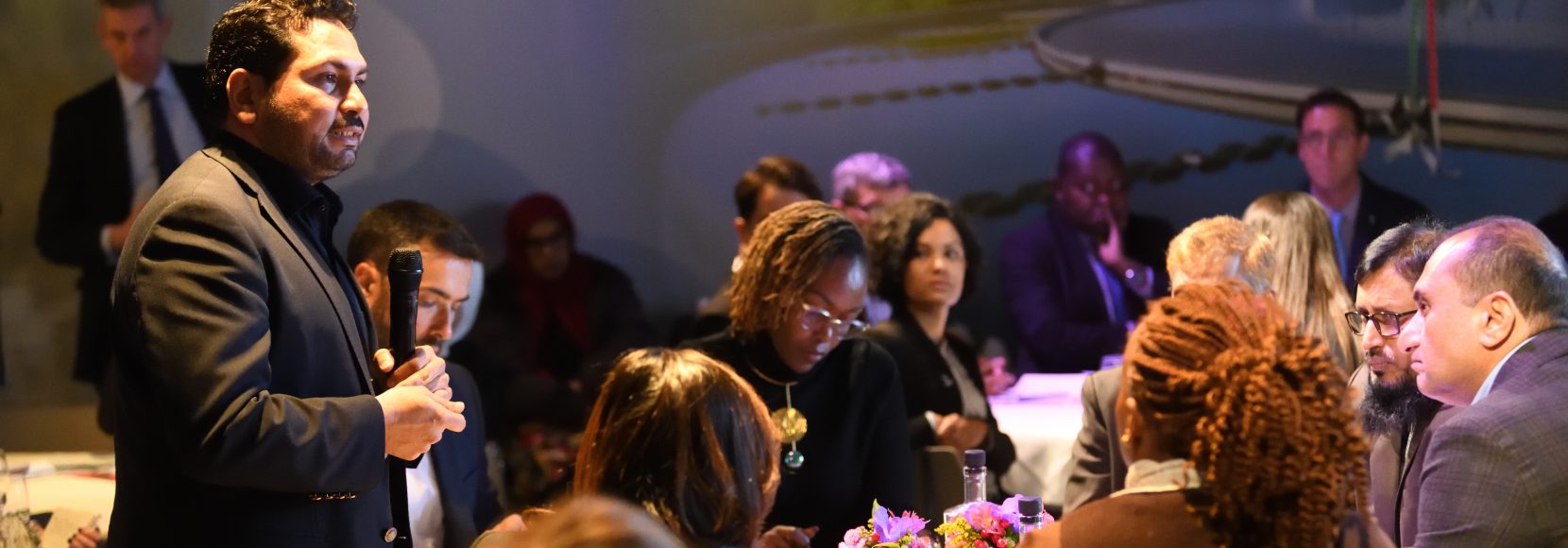
Changing the Game for Food Fortification
Last week, senior executives from the ingredients and food processing industry gathered at the World Economic Forum in Davos, Switzerland, to share ideas and progress on their critical joint actions to address the impact of the food price crisis and the massive global burden of malnutrition. One event, co-convened by DSM, TechnoServe and Endeva, called on private and public sector actors to support, empower, and reward the food millers who fortify staple foods with essential micronutrients and improve health at a population level.
Note: “Hidden hunger” is a form of undernutrition affecting billions of people in sub-Saharan Africa. Caused by micronutrient deficiencies, it has been linked to numerous health and development issues. Food fortification is a proven, cost-effective strategy for addressing hidden hunger and helping people to access the nutrition they need, but many communities around the world lack access to fortified foods.
TechnoServe launched the Technical Assistance Accelerator Program (TAAP), with the support of the Bill & Melinda Gates Foundation, to support food companies across eight countries improve their capacity to produce and sell fortified foods for local markets.
This op-ed, written by leaders in food fortification, originally appeared in Business Fights Poverty.
Food fortification has been recognized as a highly effective intervention to counter malnutrition, and it has been the subject of events and commitments at the World Economic Forum Meeting in Davos before. But millers – shorthand for the food processors who produce fortified staples, including rice, flour and oil – have not historically been at the centre of this conversation. This is one of the many reasons fortification has not reached its full potential. Millers are now working to change this.
On Monday, January 16th of this year, millers from all over the world came together with other food fortification actors in the SDG Tent at the annual World Economic Forum Meeting, calling on the global community of their peers to contribute to the fight against malnutrition. Today, more than 2 billion people suffer from some kind of micronutrient deficiency. With spiraling food prices exacerbating an already dangerous global food and malnutrition crisis, action has never been more urgent.
Millers articulated some of the common barriers to adequate fortification:
- Consumers, especially those with low incomes, are highly price sensitive and mostly unaware of the benefits of fortification
- Rocketing raw material costs put further pressure on costs, leading millers to give up fortification or use cheaper ingredients with poorer nutritional value
- Testing nutrition quality of products requires special skills and equipment
- There can be weak and often haphazard regulatory oversight, which unfairly penalizes millers who are trying to fortify properly and lacks enforcement for those who are not fortifying to standards, or at all
These are just some of the barriers that create disincentives to sustained investment in fortification excellence.
Yet despite these challenges, the miller champions in Davos demonstrated that high quality fortification is possible. This commitment to fortification excellence can motivate others to follow their example. Sustained fortification has the power to improve nutrition while it strengthens brand equity and, ultimately, business performance.
A new industry-led coalition will provide recognition and rewards, underpinned by greater transparency on fortification results, in addition to technical support directly to partners in the country. With support from TechnoServe, and other strategic fortification partners, millers from low- and middle-income countries, and industry colleagues are working together to refine this concept over the coming months. Are you a miller, or do you provide support to millers to fortify staples? Please reach out to Dominic Schofield, Miller For Nutrition Program Director, TechnoServe, and join the coalition!





